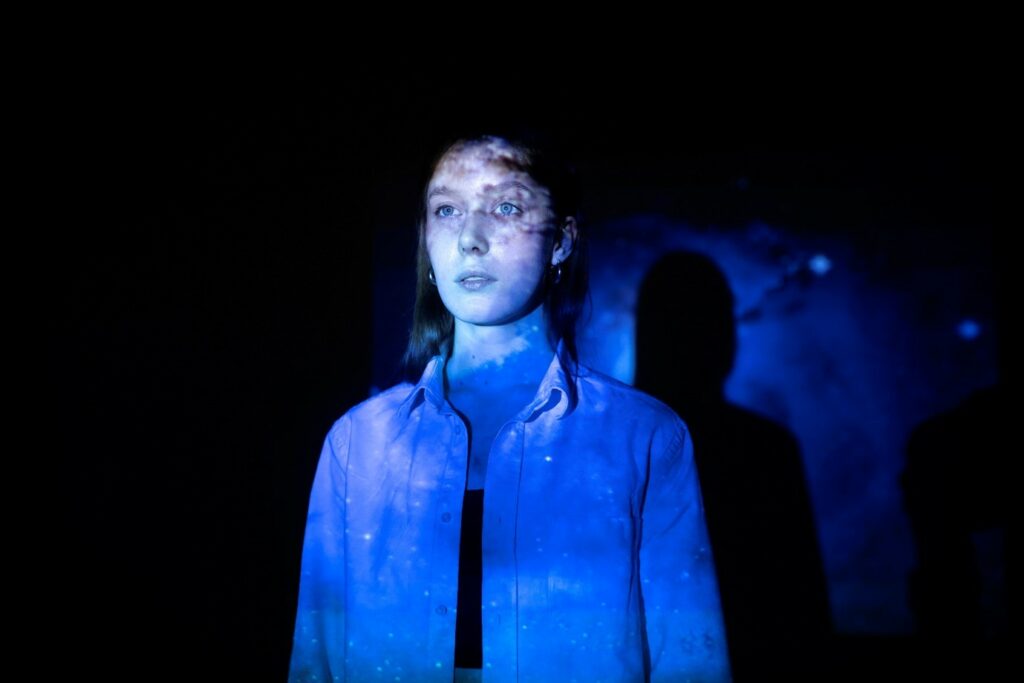
The theme of Utopia comes to the theatre with the theatre workshop promoted by the Italian partner of the EUtopia project.
Therefore, we propose to experiment with young people with utopia not only in art and music (as we have suggested in previous articles), but also on stage!
From October until December, a group of young people will be able to participate in the Teatro Utopia workshop, a space dedicated to the free expression of young people on the theme of imagining alternative scenarios for the city in which they live.
The aim is to create an opportunity for the active participation of young people through the concept of utopia – understood as a creative and propulsive factor, i.e. capable of giving a decisive impulse to an activity – and at the same time to create a relationship with policy makers, their peers and fellow citizens, thanks to the communicative and expressive potential of theatre.
The first meeting of the workshop was an opportunity to find out how the young participants understood the concept of Utopia: what emerged was that young people equate Utopia with the concept of ‘beautiful but impossible’.
That is why they were asked a question. What distinguishes the dream from utopia?
The dream is in fact a mental activity that takes place during sleep, involuntary and unintentional in character. It can, moreover, result in a purely fantastic imagination untethered from reality and generate a totally abstract and impossible scenario.
Utopia, on the other hand, differs from this in at least four characteristics:
- arises from a desire or instinct for improvement
- starts from a more or less conscious analysis of a state of affairs, which is somehow not considered the best possible
- can initiate a project and trigger a process to generate change
- can be shared and generate a collective action (or at least intention)
In the TEATRO UTOPIA workshop, utopia does not represent a fantasy, an imaginary realm where everything magically works with justice and equality, but starts from reality and acquires value through ethical and civil commitment. Texts and considerations by philosophers and writers will be used to reflect together with young people on this approach to the theme of utopia. Among them:
- Ernst Bloch, who spoke of the ‘hope principle’ and ‘militant optimism’ precisely to describe a possible project of mankind, from which a process is triggered to build a fairer society for all. His concept of utopia therefore has a dynamical-historical sense: utopia is a project that mankind hopes can become reality and for which it strives with hope and optimism.
- Stefano Benni, according to whom ‘utopia is not a distant thing or a refuge to resort to when we are tired of reality but our daily possibility to live with hope’. Therefore, he suggests that ‘it is not so much the goals of utopia that count, but the dreaming of realising them. What matters is not that its goal is realised but that its journey is lived with passion and that will make it possible’.
- Carlo Ossola, who suggests considering utopia ‘not as a ghost that comes from afar, but as a project that we have even when we do not have the tools to realise it‘.
- Don Andrea Gallo, who wrote ‘Utopia is this. When you are convinced that three hundred metres away is what you want to achieve, you walk along it and realise that utopia is three hundred metres away. That’s why you say to yourself, “Then it’s really unattainable”. But no, because there is a positive aspect, that you are walking, and the utopia is realised on the way.”
But it will not only be the considerations of philosophers and writers that will guide the workshop: starting with the “Observation Game” proposed among the Activities and Tools of the EUtopia project, young people will be invited to give their own definition of utopia, looking for it in concrete actions and possibilities for a more just, sustainable, inclusive and beautiful city to live in
